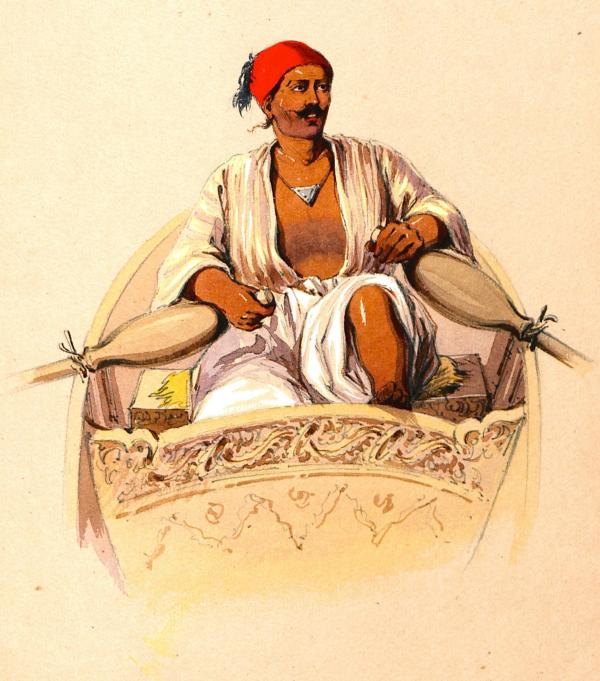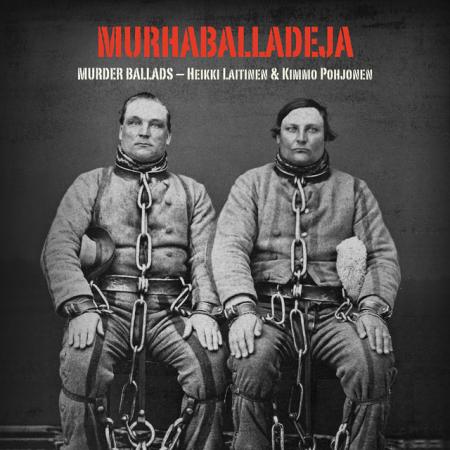O Καϊξής / Kayıkçı

Γκελ γκελ Καϊξή
(continuer)
(continuer)
envoyé par Riccardo Gullotta 29/3/2021 - 23:59
Parcours:
Ponts
Canto notturno di un lavoratore errante dell'Europa (non più) Unita

Qua non si campa, si fa la fame
(continuer)
(continuer)
envoyé par Alberto Scotti 29/3/2021 - 16:20
L'età della ragione

Mister Tamburino, non si scherza più
(continuer)
(continuer)
envoyé par Alberto Scotti 29/3/2021 - 14:41
Itkuvirsi sodissa kaatuneille
anonyme

[ab. 1914?]
Recorded by Kimmo Pohjonen and Heikki Laitinen
Album / Albumi: Murhaballadeja [2012]
"Itkuvirsi sodissa kaatuneille is a fine tale of the pioneer of Finnish folk music research, Armas Otto Väisänen. The vocal samples used so well in the performance are from Väisänen’s lament recordings made in Mordova, Russia in 1914. Pohjonen plays the accordion impressively throughout."
Finnish Music Quarterly
This song is called “Lament for Those Fallen in Wars”; it has been recorded by Kimmo Pohjonen and Heikki Laitinen in their (wonderful) 2012 album Murhaballadeja (“Murder Ballads”). I have tried to translate the lyrics, but this task has proved far beyond my current possibilities. I can only grasp the general meaning of the song lyrics, but no full translation is possible to me. I kindly ask Juha Rämö to translate it in no hurry, and thank him in advance. [RV]
Recorded by Kimmo Pohjonen and Heikki Laitinen
Album / Albumi: Murhaballadeja [2012]
"Itkuvirsi sodissa kaatuneille is a fine tale of the pioneer of Finnish folk music research, Armas Otto Väisänen. The vocal samples used so well in the performance are from Väisänen’s lament recordings made in Mordova, Russia in 1914. Pohjonen plays the accordion impressively throughout."
Finnish Music Quarterly
This song is called “Lament for Those Fallen in Wars”; it has been recorded by Kimmo Pohjonen and Heikki Laitinen in their (wonderful) 2012 album Murhaballadeja (“Murder Ballads”). I have tried to translate the lyrics, but this task has proved far beyond my current possibilities. I can only grasp the general meaning of the song lyrics, but no full translation is possible to me. I kindly ask Juha Rämö to translate it in no hurry, and thank him in advance. [RV]
Miksis sie heittelit miun aniarmottomaks,
(continuer)
(continuer)
envoyé par Riccardo Venturi 29/3/2021 - 12:23
Rebibbia

2020
Primo vere
Primo vere
Un altro inverno è passato
(continuer)
(continuer)
envoyé par Alberto Scotti 29/3/2021 - 02:49
Parcours:
Des prisons du monde
George

Vedi George Stinney
George aveva 14 anni
(continuer)
(continuer)
envoyé par Alberto Scotti 29/3/2021 - 02:26
Parcours:
Peine de mort : homicide du pouvoir
A ningún hombre (cap.11: Poder)

(2018)
Scritta da Rosalía Vila Tobella con Antón Álvarez Alfaro conosciuto artisticamente come C. Tangana
dall'album El mal querer
El mal querer è l'album che ha consacrato internazionalmente Rosalía. Dopo Los Ángeles, rilettura originale di temi della tradizione del flamenco, la cantante catalana si spinge più in là fondendo il linguaggio della musica gitana con ritmi moderni, pop e hip-hop ottenendo un mix originale che ha fatto storcere la bocca ai puristi del flamenco ma che ha dimostrato la versatilità e la capacità di scrittura di Rosalía che, appena venticinquenne, è diventata una star internazionale.
Il disco è un concept liberamente ispirato al Roman de Flamenca, uno dei più famosi romanzi della letteratura medievale in lingua occitana. Il romanzo narra di una giovane che sposa un uomo che, per gelosia, arriva a rinchiuderla in una torre. Nella rielaborazione di Rosalía ,... (continuer)
Scritta da Rosalía Vila Tobella con Antón Álvarez Alfaro conosciuto artisticamente come C. Tangana
dall'album El mal querer
El mal querer è l'album che ha consacrato internazionalmente Rosalía. Dopo Los Ángeles, rilettura originale di temi della tradizione del flamenco, la cantante catalana si spinge più in là fondendo il linguaggio della musica gitana con ritmi moderni, pop e hip-hop ottenendo un mix originale che ha fatto storcere la bocca ai puristi del flamenco ma che ha dimostrato la versatilità e la capacità di scrittura di Rosalía che, appena venticinquenne, è diventata una star internazionale.
Il disco è un concept liberamente ispirato al Roman de Flamenca, uno dei più famosi romanzi della letteratura medievale in lingua occitana. Il romanzo narra di una giovane che sposa un uomo che, per gelosia, arriva a rinchiuderla in una torre. Nella rielaborazione di Rosalía ,... (continuer)
A ningún hombre consiento
(continuer)
(continuer)
envoyé par Lorenzo 28/3/2021 - 23:00
La Malquerida

(2020)
Natalia Lafourcade regresa a la escena musical con “La Malquerida”, un fuerte y emocional tema en contra de la violencia hacia a la mujer que aflige a miles de mexicanas. La cantante de 36 años de edad se inspiró en los movimientos feministas que han tomado fuerza en México, particularmente, en su lucha por hacer conciencia de los feminicidios en el país. De acuerdo a la propia Natalia Lafourcade, “La Malquerida” fue creada como un himno al feminismo mexicano y especialmente a las activistas que han salido a tomar las calles en fechas recientes.
Natalia Lafourcade regresa a la escena musical con “La Malquerida”, un fuerte y emocional tema en contra de la violencia hacia a la mujer que aflige a miles de mexicanas. La cantante de 36 años de edad se inspiró en los movimientos feministas que han tomado fuerza en México, particularmente, en su lucha por hacer conciencia de los feminicidios en el país. De acuerdo a la propia Natalia Lafourcade, “La Malquerida” fue creada como un himno al feminismo mexicano y especialmente a las activistas que han salido a tomar las calles en fechas recientes.
“Para todas esas mujeres que están marchando, que están trabajando muy duro. Esta canción es para ustedes, hermanas”
Me llaman la malquerida
(continuer)
(continuer)
28/3/2021 - 22:15
×
![]()

O Kaïksís
[ 1948 ]
Στίχοι / Söz / Testo / Lyrics / Paroles / Sanat:
Giórgos Fotídas [ Γιώργος Φωτίδας]
Film / Ταινία / Movie / Elokuva:
Biket İlhan
Kayıkçı
Μουσική / Müzik / Musica / Music / Musique / Sävel:
Apóstolos Chatzichrístos [Απόστολος Χατζηχρήστος] , Evángelos Chatzichrístos [Ευάγγελος Χατζηχρήστος]
Ερμηνεία / Tarafından gerçekleştirilen / Interpreti / Performed by / Interprétée par / Laulavat:
1. Apóstolos Chatzichrístos [Απόστολος Χατζηχρήστος] , Evangelos Chatzichristos [Ευάγγελος Χατζηχρήστος]
Δίσκος / Disco / Disc / Disque / Vinyylilevy : Απόστολος Χατζηχρήστος Οι Μεγάλοι Του Ρεμπέτικου – 2 MARGO 8151 [1976]
2.Hüsnü Şenlendirici and Trio Chios
'Αλμπουμ / Album: Both Sides of the Aegean [2010]
3. Maria Farandouri
4. Haris Alexiou
'Αλμπουμ / Album: Η Ζωή Μου Κύκλους Κάνει [1982]
Premessa
Talvolta ci si imbatte... (continuer)